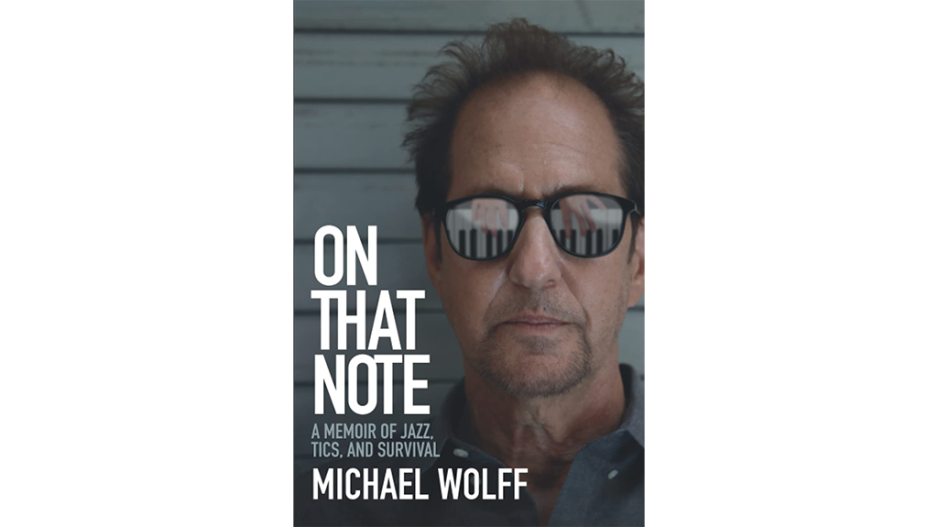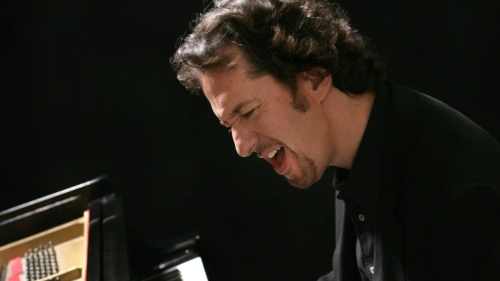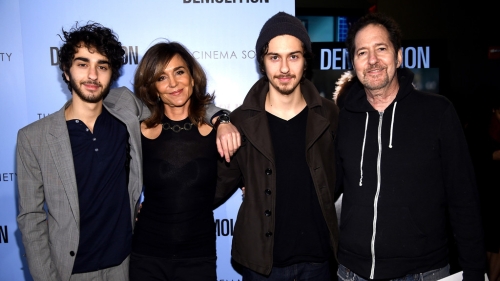The piano was really my saving grace. Just touching the ivory keys on our old upright soothed me and deactivated my need to tic—to make noises, to shrug and blink and snort and cough and clear my throat and clench my anus. The energy of the music swam up my arms, dove into my body, and protected me from the evil compulsions I was trying to conquer.
Michael Wolff, adjunct professor of Jazz Studies, is an award-winning jazz pianist, composer, and bandleader. His CV includes years as musical director for Grammy-winner Nancy Wilson and musical director on The Arsenio Hall Show. He has released 21 albums to critical acclaim and has composed scores for both movies and television. Wolff went out on the road when he was 20-years-old and over the next 49 years, went on to conduct orchestras and perform all over the world. Recently, he added another notch to his creative belt with the release of his memoir, On That Note.

What made you decide to write your memoir?
I’ve loved reading since I was very young, but when I got into junior high and high school, I really got into it. I read Norman Mailer, F. Scott Fitzgerald, Hemingway, J.D. Salinger, and Vonnegut. I never thought I could write my own book, but my father-in-law, who was a venture capitalist in the 1950’s, wrote one and I thought maybe I could too. I was also inspired by Anthony Bourdain’s Kitchen Confidential and The Glass Castle by Jeannette Walls, about a homeless woman who ends up going to Columbia University.
How long did it take you to write the book and what was the original premise?
I started writing 10-years ago. It was originally a “how to” book. How to be a pianist, a musician, a composer, etc. But after writing 100 pages, I realized what I really liked were the stories, not the “how to” part. So five or six days a week, I’d sit at the same spot in my apartment and write. I just wrote whatever came to my mind about my life. It took two years before I learned how to write in my own voice. Writing is like music. You need to discover your inner voice so that you sound like yourself. After I figured that out, I began organizing chapters and went back and made it chronological.
What was the response from your agent?
My agent told me that most memoirs have something that people try to overcome. That wasn’t difficult for me to do. I almost died twice. The first time I was diagnosed with the wrong cancer. After a year and a half of not getting better, I went to Memorial Sloan Kettering. The cancer specialist discovered that I had an extremely rare, untreatable cancer called histiocytic sarcoma. I was in treatment for four years and spent eight months in bed. My doctor actually came up with the cure. Now if someone gets histiocytic sarcoma, they’ll be okay.
That certainly is “overcoming something.” Anything else?

Yes, I have Tourette’s Syndrome. I’ve had it since I was little, but never knew what it was. It was really difficult and embarrassing being a kid. I had many physical tics and made noises. I couldn’t be cool. When I was in my 30’s I went with a friend to a horse farm. The owners had two children with Tourettes. The mother asked me, “You know you have Tourette’s right?” She suggested I read, The Man Who Mistook His Wife For a Hat by Oliver Sacks (a future friend) and focus on the chapter, “Witty, Ticcy Ray.” That confirmed it, she was right. When I had cancer my body was too weak to tic. When the doctor said I was improving, I asked how she knew. “Your tics are back,” she said.
Assuming you did not write for those four years?
No, but once I was better, I knew I had to finish the book. I had written up to the time in the 90’s when I was with Arsenio Hall and met my future wife who was a guest on the show (Polly Draper - well known for playing Ellen on Thirty-Something. The couple is celebrating their 30-year anniversary this year).
How did you come to be a celebrated jazz pianist?
The piano saved me. Literally. When I came home from high school I would eat a bowl of cereal, play the piano, eat dinner, play the piano, and then go to sleep. I wouldn’t feel tics when I played. It’s about the energy and impulsiveness, being focused on the music, and the actual tactile feeling of my hands on the keys. I always felt like an outsider until I was a teenager and committed myself to jazz. I started meeting all these musicians and people off the grid who accepted me. We were like a subculture where, if you could play, you were accepted.
Anything else about you that would surprise people?
I did stand up comedy for five years in the 80’s. I’ve always loved being funny. When I was playing with Grammy-winning opera singer, Thomas Young, he asked if I wanted to continue to play while he was on break. That’s when I started. I decided the audience needed a change from the vocals, so I played the McDonalds theme song as Beethoven, Mozart, Bach, and others would play it. It went over really well. Lewis Black was the MC and he encouraged me to do stand up. I did comedy at the piano. I also did some impersonations, like what Jimmy Stewart would sound like as an air traffic controller.

How did you come to the Jazz Studies Program?
I’m in my third year teaching at NYU Steinhardt. I began years ago as a substitute before I got cancer. Dave Schroeder offered me the job while I was recuperating. I didn’t know if I was up to it, but I decided to give it a try. I’m really enjoying it. I love to share my experience and point of view for people who are interested, and these students are so engaged and into it. I love learning from them too. Jazz is a music you have to play from your insides out. You need to be original and have a very subtle inner ear.
What will you be doing five years from now?
I’ll be alive. I want to keep writing music, performing, and teaching. I love this career. I’m the luckiest person in the world; the fact that I got cured from something that had no cure. And I am so lucky to have an amazing wife and sons. I am grateful for every day.
